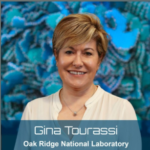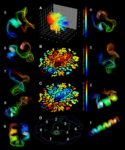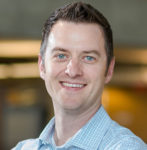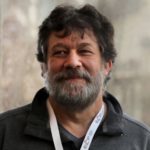What happens when Department of Energy (DOE) researchers join forces with chemists and biologists at the National Cancer Institute (NCI). They use the most advanced high-performance computers to study cancer at the molecular, cellular and population levels.
Exascale Computing Project: Leveraging HPC and Neural Networks for Cancer Research
Podcast: A Codebase for Deep Learning Supercomputers to Fight Cancer
In this Let’s Talk Exascale podcast, Gina Tourassi from ORNL describes how the CANDLE project is setting the stage to fight cancer with the power of Exascale computing. “Basically, as we are leveraging supercomputing and artificial intelligence to accelerate cancer research, we are also seeing how we can drive the next generation of supercomputing.”
Exascale CANDLE Project to Fight Against Cancer
The CANcer Distributed Learning Environment, or CANDLE, is a cross-cutting initiative of the Joint Design of Advanced Computing Solutions for Cancer collaboration and is supported by DOE’s Exascale Computing Project (ECP). CANDLE is building a scalable deep learning environment to run on DOE’s most powerful supercomputers. The goal is to have an easy-to-use environment that can take advantage of the full power of these systems to find the optimal deep-learning models for making predictions in cancer.
Argonne Looks to Singularity for HPC Code Portability
Over at Argonne, Nils Heinonen writes that Researchers are using the open source Singularity framework as a kind of Rosetta Stone for running supercomputing code almost anywhere. “Once a containerized workflow is defined, its image can be snapshotted, archived, and preserved for future use. The snapshot itself represents a boon for scientific provenance by detailing the exact conditions under which given data were generated: in theory, by providing the machine, the software stack, and the parameters, one’s work can be completely reproduced.”
Video: Rick Stevens from Argonne on the CANDLE Project for Exascale
In this video, Mike Bernhardt from ECP discusses the CANDLE project for Exascale with Rick Stevens from Argonne. “CANDLE is endeavoring to build the software environment for solving very large-scale distributed learning problems on the DOE Leadership Computing platforms.”
Exascale Computing for Long Term Design of Urban Systems
In this episode of Let’s Talk Exascale, Charlie Catlett from Argonne National Laboratory and the University of Chicago describes how extreme scale HPC will be required to better build Smart Cities. “Urbanization is a bigger set of challenges in the developing world than in the developed world, but it’s still a challenge for us in US and European cities and Japan.”









